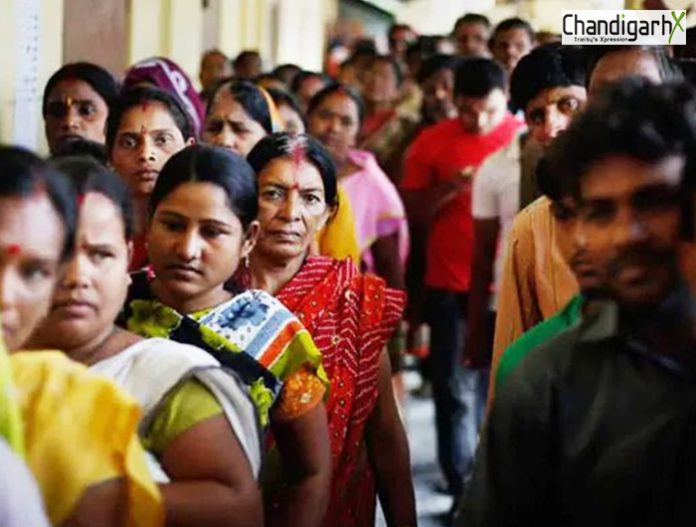What’s Shocking
The need for a larger number of female parliamentarians has increased now more than ever for better representation of half of India’s population. The emotion and empathy women bring to an issue cannot be ignored. Politicians like Maneka Gandhi have come out straightforward to ask for a consensus for reservation for women. This was way before parties started talking about it closer to the general elections.
What’s commendable is that, female voters in India may outnumber male voters in the ongoing Lok Sabha elections. Journalists Prannoy Roy and Dorab R Sopariwala in their book, The Verdict predicted this. Since 2014, polling data shows that women voters have surged in number. State elections since then have seen an almost equal number of turnouts by both men and women. However, such a large number of women find an almost missable representation in the parliament and state assemblies.
Female Candidates Standing For Lok Sabha Elections
Out of 543 Members of Parliament, currently there are barely 66 women MPs. While parties debate on a 33% reservation for women, only Trinamool Congress (TMC) and Biju Janata Dal (BJD) have without a show given tickets to female candidates. TMC has 17 female candidates out of their total of 42 candidates, while BJD has 7 women candidates out of their total of 19. If we see percentages, the parties exhibit 40.47% and 36.84% of female representation respectively.
Lack Of Representation
A Twitter thread by a political science professor at Ashoka University in Delhi is tracking the number of women candidates per party. This thread will help you understand how parties have been hesitant in allotting tickets to female candidates.
Women Update
BJP: 45/374, 12%
INC: 47/344, 13.7%
AITC: 17/42, 40.5%
PSP (Lohia), 3/35, 7.9%
SP: 5/29, 17.2%
AMMK: 3/23, 13%
SHS: 1/22, 4.5%
ADMK: 1/21, 4.8%
DMK: 2/20, 10%
NCP: 2/18, 11.1%
BJD: 7/19, 36.8%
JD(U): 1/17, 5.9%
RJD: 3/17,17.6%
TRS: 2/17, 11.8%
BSP 1/12, 8.3%
Women As Proxy Candidates
Several people decry that women are not interested in politics and hence do not participate in it–which is a laughable excuse to say the least. The reality to counter this argument lies in rural India where using women as proxy politicians is a prevalent practice. According to law, one-third of the seats in Panchayat elections are reserved for women. Men of the family use this to score a seat and later the female candidate’s father, brother, husband, or other male relative takes over the role. The most famous example can be found in Bihar where Rabri Devi was the Chief Minister in name, but the show was run by her husband Lalu Yadav.
Attitude Towards Female Politicians
Male politicians have dirtied the field further by bringing down women politicians in their speeches and equating them to their looks. These incidents have made it to the media and have been forgotten soon after.
So We’re Saying
Marginalising women and giving them passive roles in society has been the doing of men themselves. Therefore, as the gender-wise voter turnout gap closes, the electoral representation of women fails to pick up. The government could start by enforcing 33% reservation for women in the parliament. This would ensure that an entire gender is not ignored in a political arena dominated by men. Politicians like Union Ministers Sushma Swaraj and Nirmala Sitharaman have proved their mettle in positions of power, and the “test” for women should stop here.




















